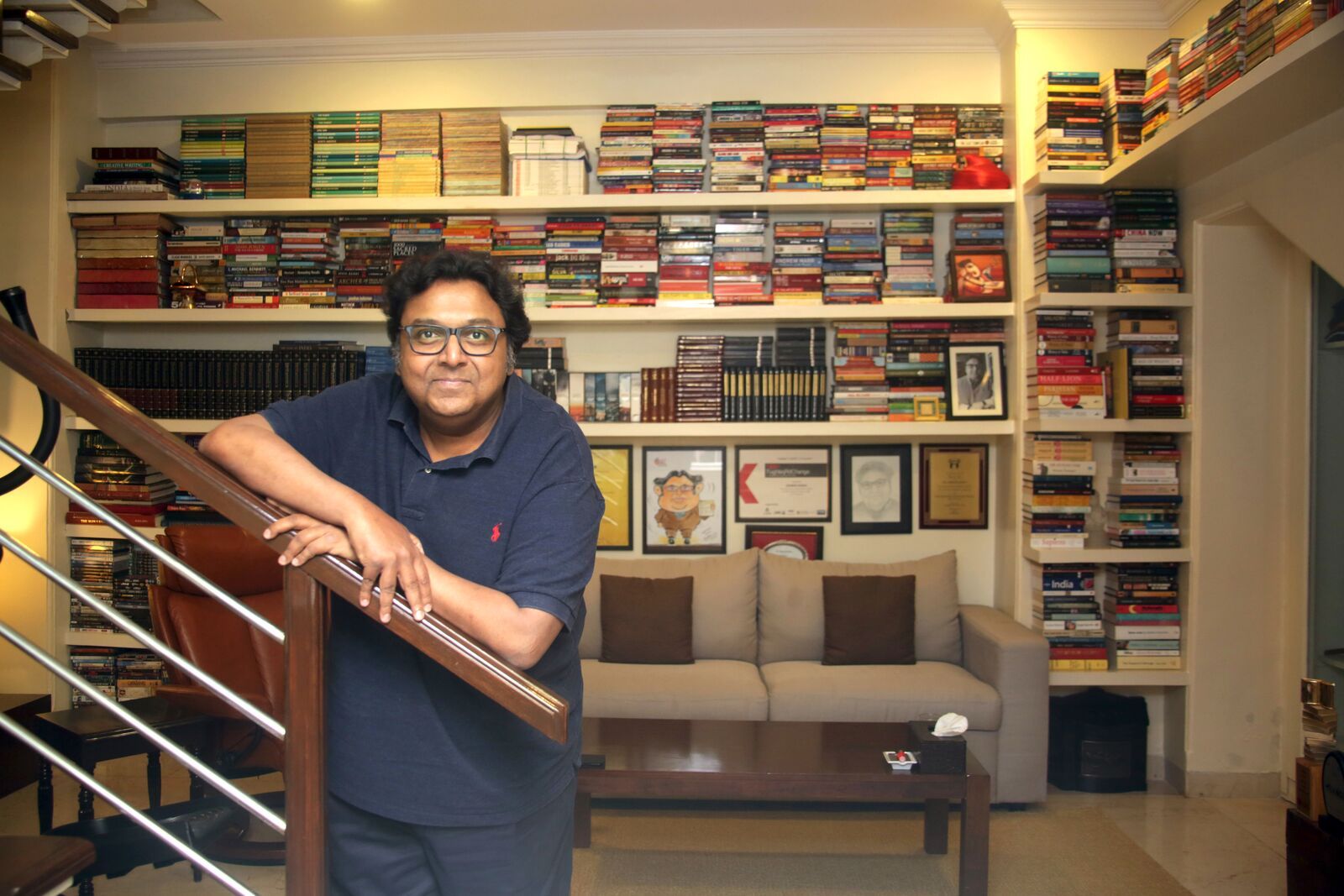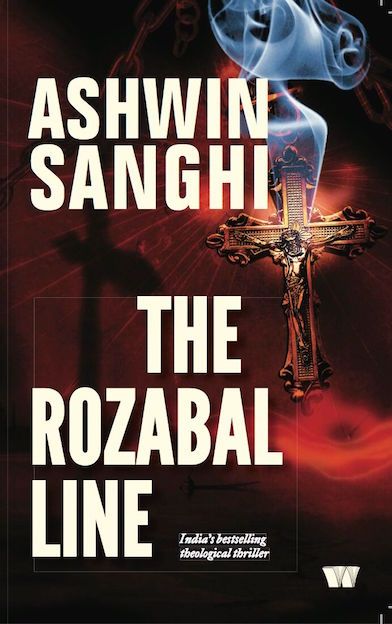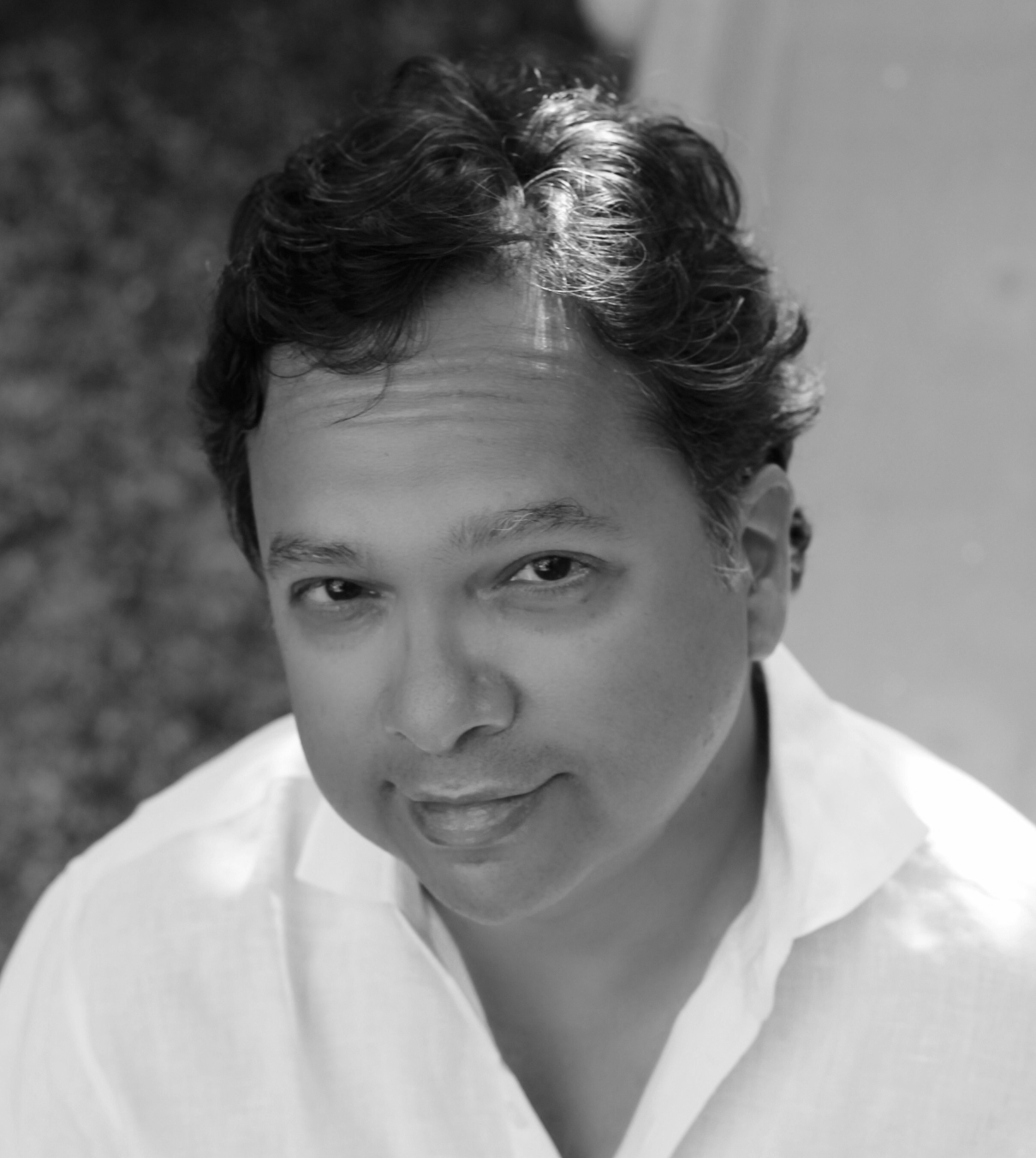For this month’s Q&A we were very fortunate to speak with Ashwin Sanghi, best selling author of The Rozabal Line, Chanakya’s Chant and The Krishna Key. Ashwin’s novels are page-turning thrillers that incorporate Western and Eastern theology, gripping the reader with tales of rich historical narrative and modern conspiracies. For our discussion with Ashwin we spoke of his process of writing his first novel The Rozabal Line, the hardships of writing a first novel and the ways in which his writing process has changed over time.

The Rozabal Line is a thriller that spans over centuries, moving between past and present. How do you keep track of the events and dates in the novel? For example did you construct a timeline prior to writing the book?
It was my very first book and I hadn’t written anything longer than a couple of pages before that. I had no clue of the writing process and how easy it would be to get myself tied up in knots. I wrote The Rozabal Line without any plot planning, without any timeline, without any character sketches. And the inevitable happened. I found myself getting stuck repeatedly, contradicting myself, and putting myself into the proverbial corner. The Rozabal Line was unable to find a publisher of over two years after completion and went through five rounds of editing to make it coherent. I still believe that The Rozabal Line is one of my most difficult reads because I simply had no idea of how to plan better before I started writing. Of course, it was also my greatest learning experience because I was far more organized for my next few novels including Chanakya’s Chant, The Krishna Key, The Sialkot Saga and Keepers of the Kalachakra.
A thriller that dwells into plot lines regarding various religious sects all over the world, how much research did you do to prepare for The Rozabal Line? Do you have a system in place where you compile all the research for your novel?
The research was immense, not only for The Rozabal Line but also for all my subsequent books. During the writing of The Rozabal Line I was utterly disorganized. I read well over fifty books, made numerous trips, interviewed individuals who knew about the subject. But I could never lay my hands on what I wanted at any given time. By the time that I write my second book, the process became much more systematic. I began electronically scanning and converting old manuscripts to PDFs; I began making notes that were tagged with keywords; I maintained a list of web links and online videos that contained relevant information; eventually I started updating all of this material into Scrivener so that it would also be available offline to me during the writing process.

The Rozabal Line is a unique thriller that brings together Eastern and Western theology and history, what were some of the challenges you experienced while weaving together these two distant worlds?
Prior to The Rozabal Line, there was hardly any discussion of the possibilities of overlap between dharmic—or Indic—faiths and Abrahamic ones. Some scholarly discussion about these issues happened in research papers or non-fiction tomes but never in mainstream books, movies or popular culture. This was uncharted territory. The biggest challenge was the trade-off between story and research as also the trade off between pace and information. On the one hand because this was uncharted territory, there was simply no way to make my story believable without bringing forth that information through the pages. But that compromised storytelling and pace.
Where, when and how often do you write?
I usually write everyday in the mornings from 5am to 9am. People usually have a 9-to-5 job; I have a 5-to-9 one! I write everywhere—my study, my living room, on aircrafts, in hotel rooms, in restaurants. The middle part of my day is devoted to edits and the business of marketing my books. The end of my day is for family, followed by a few hours of reading and research. Essentially, I write in the mornings and read in the evenings.
Do you often develop your characters prior to writing, or do they naturally evolve and develop as you write?
My characters develop naturally owing to the detailed plot. Unlike many writers whose plots develop according to the dictates of characters, my characters develop according to the dictates of the plot.
What was the most enjoyable aspect of writing The Rozabal Line?
The utter abandon with which I could write because I was entirely unknown. This meant that I had no expectations to fulfil. Success tends to impose limitations.
Who is your favourite writer, and favourite book?
I don’t really have any favourite writers but I do have several favourite books. If you asked me for a list of my favourite ten, it would read something like this (in no particular order). Jesus Lived in India by Holger Kersten, Midnight's Children by Salman Rushdie, The Da Vinci Code by Dan Brown, Autobiography of a Yogi by Paramhansa Yogananda, Freedom at Midnight by Larry Collins and Dominique Lapierre, The Girl with the Dragon Tattoo by Stieg Larsson, Sacred Games by Vikram Chandra, Sea of Poppies by Amitav Ghosh, A Brief History of Time by Stephen Hawking and Many Lives, Many Masters by Brian Weiss.
Is there any advice you would give to aspiring writers?
One: don’t think about being a writer... start writing. Two: don’t quit your day job… it could be a while before royalties can sustain you. Three: don’t think of yourself as a writer but as a storyteller… words become irrelevant if your story is great. Four: become thick-skinned… rejections and criticism are part of the process of evolving as an author. Five: if you do become a success, keep your feet on the ground and understand that the words are not yours but a blessing from the creative muse.
To download the latest version of Granthika, click here.


